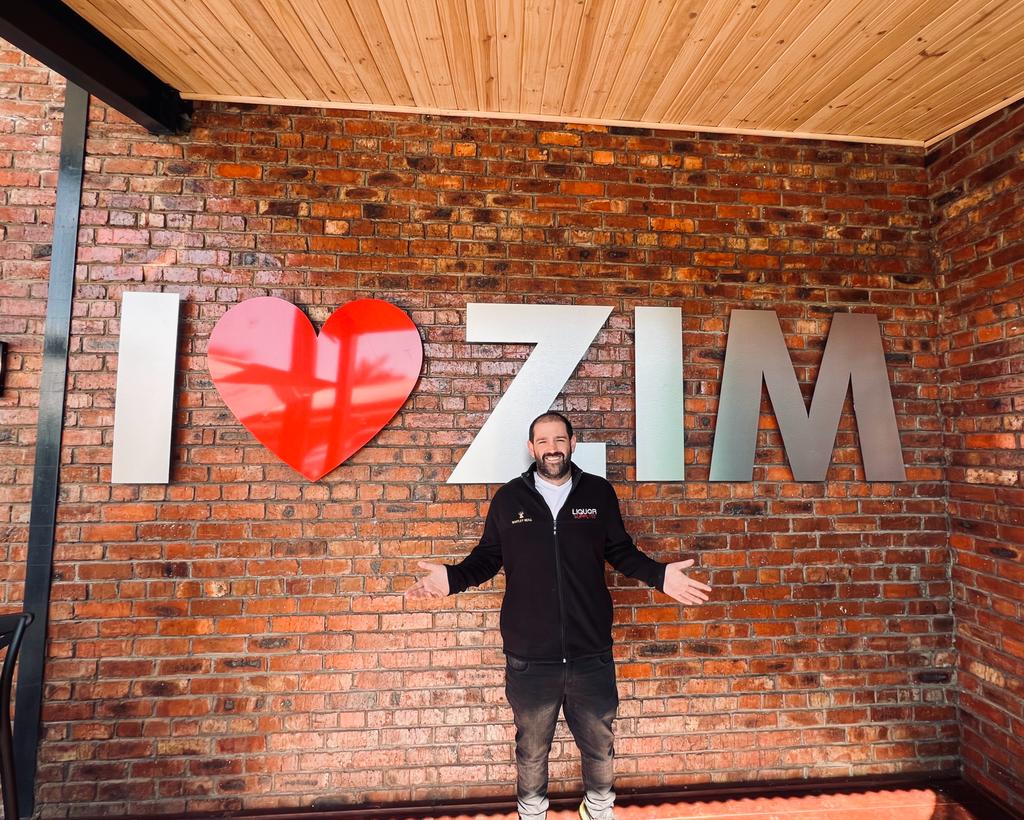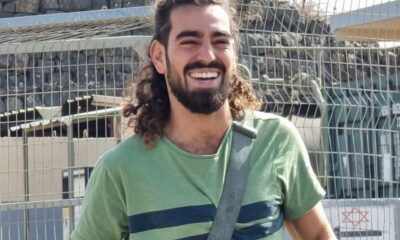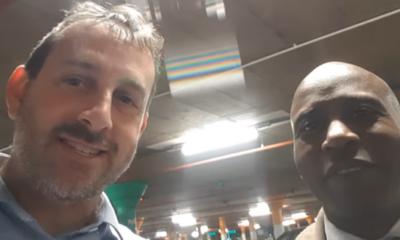
Lifestyle/Community

Going home – reversing the Zimbabwean narrative
The story of the Zimbabwean Jewish community in recent decades has largely been one of exodus. However, 35-year-old entrepreneur Yaron Wiesenbacher is reversing that narrative. Last month, he packed up his life in Cape Town, closed his business, boarded a plane with his dog, and headed back to his homeland.
“My life in Cape Town was good, but I think moving back has been on my mind for about five years,” says Wiesenbacher. “There’s a lot of economic opportunity here. For me personally, I think there’s a lot more growth opportunity here in Zim.”
His sister has emigrated to London, his brother lives in Johannesburg [while running his businesses in Zimbabwe], and his parents live half the year in London and the other half between Cape Town, Johannesburg, and Bulawayo. “So, most of the time it was just me left in Cape Town. I kind of thought, well, now it’s my time to live where I want to live. I was ready for a new challenge.”
Wiesenbacher was born in Bulawayo in 1988. “I went to school at Carmel, which is an amazing Jewish primary school that is still going. It doesn’t have many Jews in it, but it’s still being run as a Jewish primary school. I finished school there at 12, and then went to Christian Brothers College. We left in 2002 because of the economic situation and moved to Cape Town. I lived there for 21 years, and was in restaurants for the past 10 years. I had a coffee shop in Cape Town called Hard Pressed Café, and then opened Merle’s Schnitz. I am now back in Bulawayo, commuting between Bulawayo, Harare, and Victoria Falls, working for my brother who has a few different restaurants in all those three cities.”
Like many Jews, his family’s story is one of wandering and finding refuge.
“My grandparents on my father’s side left Germany in the 1930s. So I have the German surname and the German passport. They settled in Northern Rhodesia, which later became Rhodesia. My mom was born in Bulawayo, my dad was born in Harare. My mother’s father was born in South Africa, but my mother’s mother was born in Bulawayo. Both sides are quite well known in the Zimbabwe Jewish community.” His grandfather, the late Freddy Wiesenbacher, was president of the Harare Hebrew Congregation for many years.
Now, Wiesenbacher is back in his family’s heartland and literally in the home he grew up in, which was never sold.
“Emotionally, leaving Cape Town was difficult, but now that I’ve done it, I’m happy with my decision. Being back here has been amazing. Friends always ask, ‘Is there loadshedding in Zim?’’ I laugh because, like, we invented loadshedding. We really did. It’s been going on for 20 years and there’s very often no power. But everyone’s kitted out with a generator or solar power, or knows what to do when the power is off. Kind of a ‘let’s get on with it’ attitude.
“I feel like in Cape Town, when the power is off, everything stops. Here, when the power is off, you just keep on going.
“I’m a Zimbabwean and for me, this country has the best people in the world. Time moves slower here and there are more hours in the day for me. I really just love being here. The air, the weather, the lifestyle.”
The rescue dog Wiesenbacher took with him to Zimbabwe has “adjusted very well, and is living her best life!”, and he has adopted another dog.
Being warmly welcomed by people has eased the transition. “Already knowing a lot of people here made a difference, but people do go out of their way to help and make you feel welcome.”
Slotting back into the Jewish community that he knew and loved growing up has been comforting. Nothing demonstrated this more than when he sat down to a communal seder with “the last 30 Jews in Bulawayo”.
“This tiny community that was once so strong, having the ability to tell the story of Pesach together – it feels like one big family. Everyone chipped in and made the meal, and there was one long table. It was very special to be part of it.”
There are about 100 Jews left in Zimbabwe, with about 30 in Bulawayo and 70 in Harare, including some Israelis. “Every now and again, we get a minyan. If someone’s got yahrzeit, we message each other and people turn up.” They also mark all the chaggim.
Wiesenbacher says many Zimbabweans are returning, especially young people. “There’s a lot of opportunity here for work and for things to happen. It also feels like there’s more equality between people. It’s definitely something I’ve noticed. For example, there’s no one begging at traffic lights.” The thing he misses from South Africa is a food delivery service like Uber Eats.
The full Jewish life that the South African community provides is also something he’ll miss.
“I want to say thank you as my family and I always felt so welcomed. I feel privileged to have been part of it. I went to Herzlia to finish school, and I felt very lucky to be able to do that. And all the little things, like having CSO’s number in my pocket. We shouldn’t take for granted what an amazing community we have in South Africa. Even though it’s a small community, just know that there’s an even smaller community a little bit up north! So, I’m grateful to the South African Jewish community.”
Wiesenbacher encourages other young people to move back to or emigrate to Zimbabwe. “I think there are incredible economic opportunities, an amazing climate, amazing people, and it’s safer than most countries I’ve been to. Having lived in South Africa and now having lived here, I feel 10 times safer here. It’s not to say I’m completely safe and that nothing bad happens here, but if you can get a job here and you can find your feet, I think it’s a great place to live.”











Ahavah
August 11, 2023 at 4:39 pm
Barukh HaShem
Shallom Aleykem thank you for information
I am Ahavah Ben Shmone from Zimbabwe 🇿🇼 in Gokwe